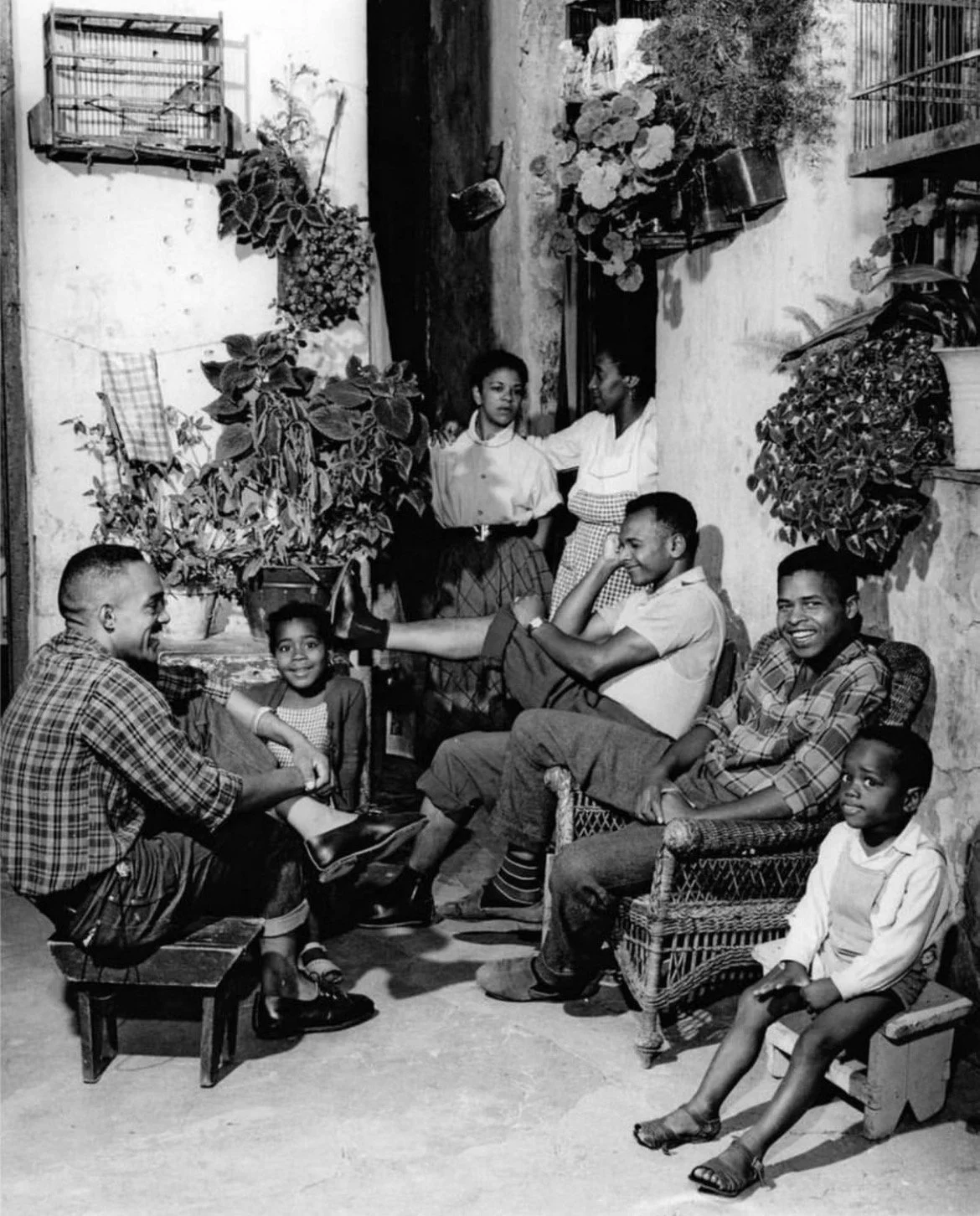There is No Latinidad without Blackness
Part of the Black August Series
Zuly Inirio
The Afro-Latinx Song & Opera Project came about as a response to a need for more nuanced and diverse representations of Latinx communities within the classical music space.
The aim of this project is to commission new works that tell the stories of the Afro-Latin and Afro-Latinx communities, as well as decolonize the classical music canon by uplifting the contributions and stories of Afro-Latin American and Afro-Latinx classical composers.
Through the last two years of research and collaborations, the amount of Afro-Latin(x) composers and artists that I have learned about has been both affirming and frustrating.
“Why were these composers left out of my higher education? Why is this music never programmed? Who is deciding that these composers should be left out of the narrative? ”
Afro-Uruguayans in Montevideo, Uruguay (1950s)
These are the questions that arise out of this work but that the Afro-Latinx Song & Opera Project aims to answer and amend.
I was very fortunate to be the recipient of an ‘Advancing Black Arts in Pittsburgh’ grant, a joint program of The Pittsburgh Foundation and The Heinz Endowments which included Afro-Latinx folks. There are times, however, within the funding ecosystem that I am met with a lack of understanding that Blackness and Latinidad are not mutually exclusive. When this happens, the project is conceptualized by panels and funders as existing at the intersections of Blackness and Latinidad which creates a divide between identities that Afro-Latinxs inhabit as one identity, not separate identities. There needs to be a better understanding of the racial diversity in Latinidad, the Afro-Latin(x) community which will challenge who broader society views as “Latino”.
In 2020, there were about 6 million Afro-Latino adults in the United States, and they made up about 2% of the U.S. adult population and 12% of the adult Latino population.
Afro-Latinos are descendants of the more than 10 million Africans who were forcibly enslaved and transported to the Americas during the transatlantic slave trade. In the U.S. specifically, the contributions Afro-Latinos are numerous and are seldom taught or discussed.
Funding projects like The Afro-Latinx Song & Opera Project not only create space for nuanced expressions of Blackness and a more complete classical music historical narrative, but challenge homogenizing definitions of Latinidad and directly interrupt the institutional and structural systems that reinforce them.
The GIA Black August Reader Series lifts up the work, aims, and possibilities of Black artists, community, and grantmakers, and offers a call to the field asking cultural grantmakers to interrupt institutional and structural racism while building a more just funding ecosystem that prioritizes Black communities, organizations, and artists. Black August, born out of Black liberation, resistance, and justice movements, is a month dedicated to critical learning and analysis, reflection and study of our roles in oppressive or liberatory systems, and an opportunity to grow, connect, and prepare for the challenging work ahead.
About the Author
Zuly Inirio is an Afro-Latina Soprano, Arts Advocate, founder of the Afro-Latinx Song & Opera Project, and the associate director of the Center for Ethnic Research Studies at the University of Pittsburgh.


